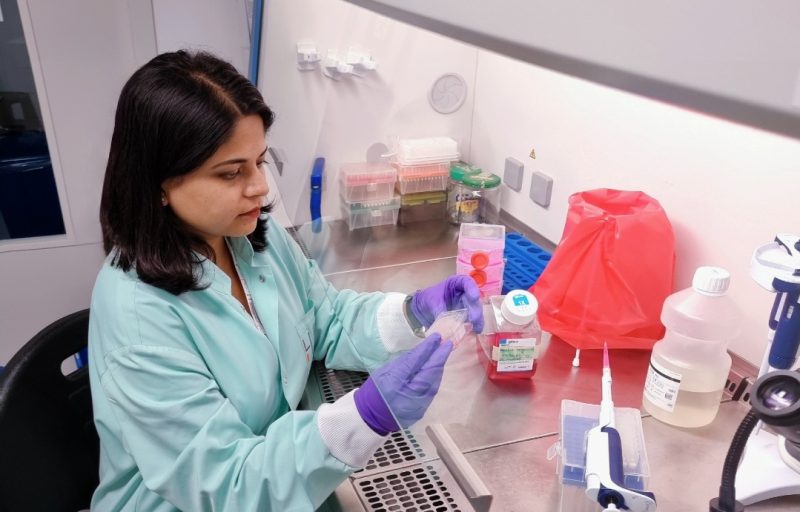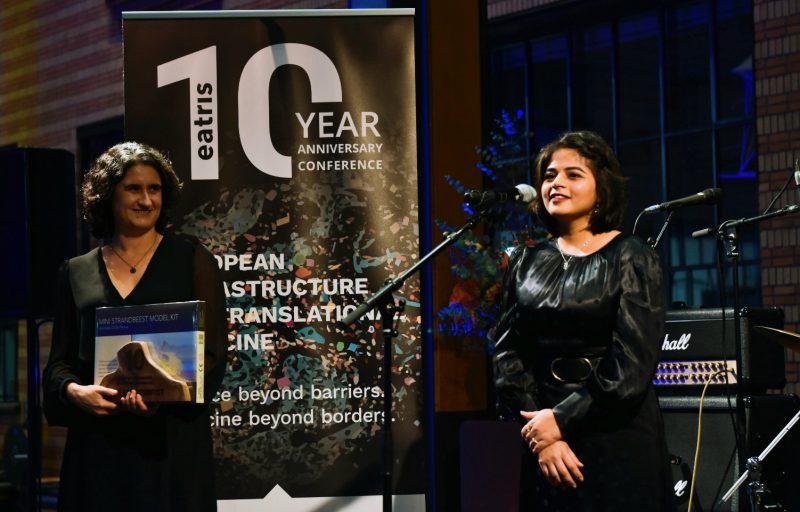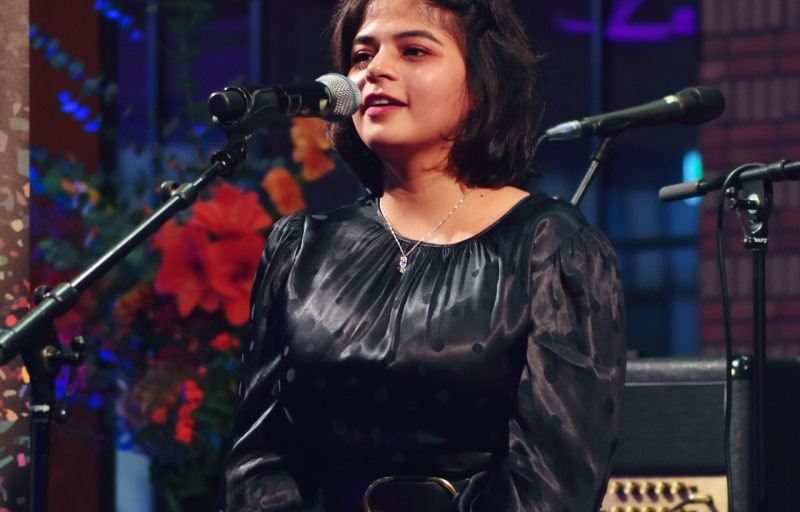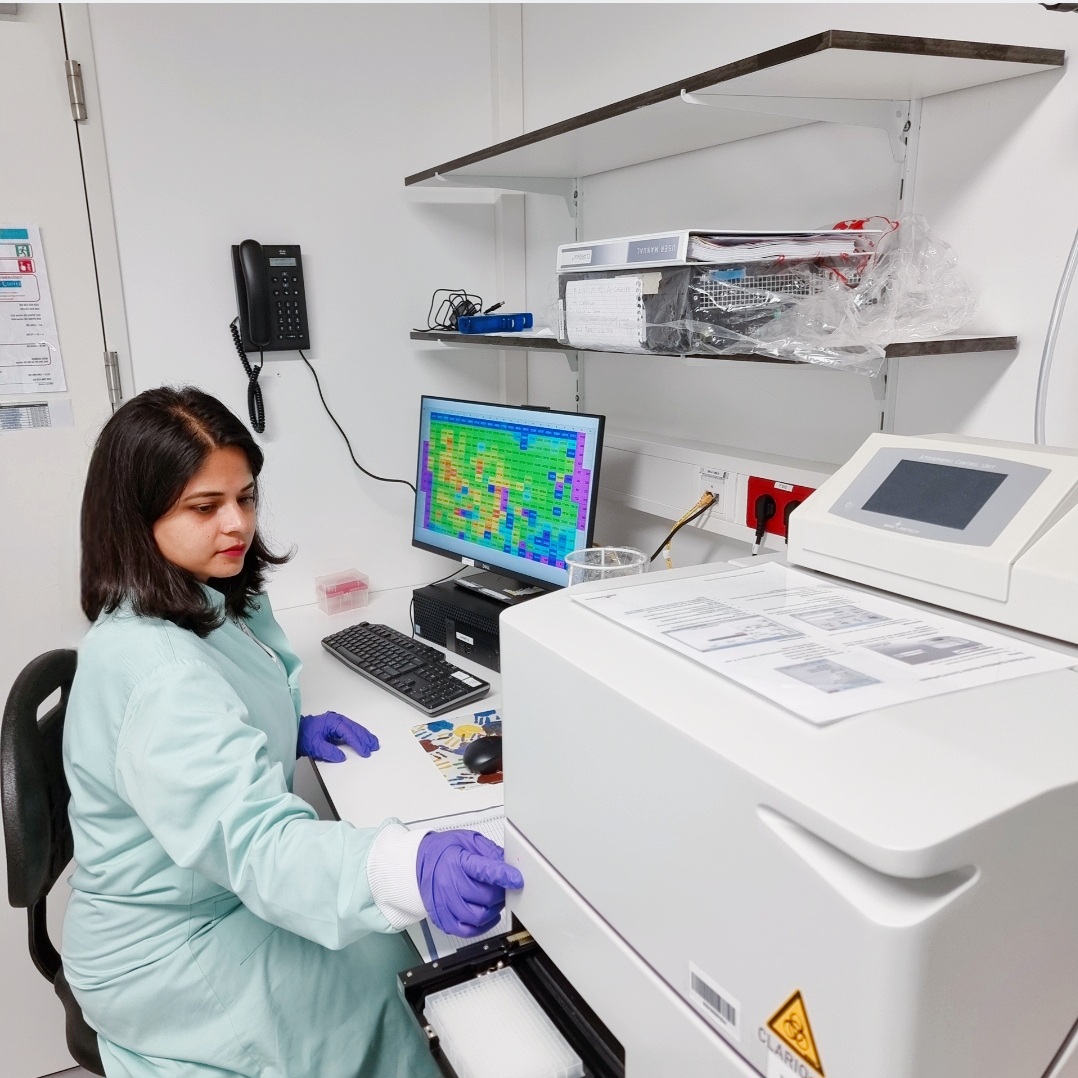
Tell us a bit about yourself
I am an Indian professional residing in Luxembourg for over two years. My background is in life sciences and I have nearly a decade of experience in cancer research and translational medicine. My academic journey led me to a PhD in cancer genomics, where I delved into unravelling the genotype-phenotype correlation of colorectal cancer (CRC) within the less-explored Indian population. This work aimed at enhancing prognosis accuracy, predicting disease susceptibility, tailoring personalised treatments, and advancing targeted therapies.
Today, I am a postdoctoral fellow at the NORLUX Neuro-Oncology laboratory within the Department of Cancer Research at the Luxembourg Institute of Health (LIH). My research focuses on pharmacogenomics profiling of patient-derived preclinical models and correlating with individual patient’s molecular data, paving the way for more personalised and effective cancer treatments. Collaborating with esteemed cancer scientists has significantly contributed to my growth as a researcher, marking an enriching chapter in my professional journey.
How are you connected with EATRIS and what does a typical week look like for you?
I work at Luxembourg Institute of Health, which is one of the member institutes of EATRIS. My first collaboration with EATRIS was when I participated in the EATRIS-Plus staff exchange programme which allowed me to visit and collaborate with experts in the field of organ-on-chip technology at the University of Zaragoza. Recently, I was awarded the first EATRIS Next Gen Scientist Award during the EATRIS 10-Year Anniversary conference (EATRIS@10) in The Hague on 21 November 2023.
My typical work week is a blend of hands-on research in the laboratory, data analysis, planning for future experiments or projects and collaborating with fellow researchers within their institutes. I also participate in weekly research group meetings, where updates on individual projects or newly published research articles are discussed. A good portion of my time is also dedicated towards reading recent publications, and writing sections of research papers, reports or grant proposals.
Tell us more about your work, which received the EATRIS Next Gen Scientist award.
My postdoc project is part of a large international effort, the multi-institutional GLASS (Glioma Longitudinal AnalySiS) consortium, of which my principal investigator (PI), Dr Anna Golebiewska is a member. The GLASS consortium aims to provide a detailed molecular characterisation of paired primary and recurrent gliomas throughout multiple centres in the US and Europe. Within our laboratory, we’ve established an extensive ‘live biobank’ comprising glioblastoma (GBM) patient-derived organoids and patient-derived orthotropic xenografts. These models faithfully mirror both the histopathological and molecular characteristics of patient tumours, providing a robust platform for conducting preclinical drug testing within a precision medicine framework. In my postdoctoral project, I am implementing a multi-parametric strategy that involves integrating multi-layered omics profiling with functional drug response assessments. This entails screening our ex-vivo preclinical models against a comprehensive library of approximately 1000 compounds to establish drug response-based patient subgrouping. The overarching goal is to inform personalised treatment strategies against GBM. This innovative approach holds the potential to lay the groundwork for early-phase, personalised omics-based precision treatment strategies.
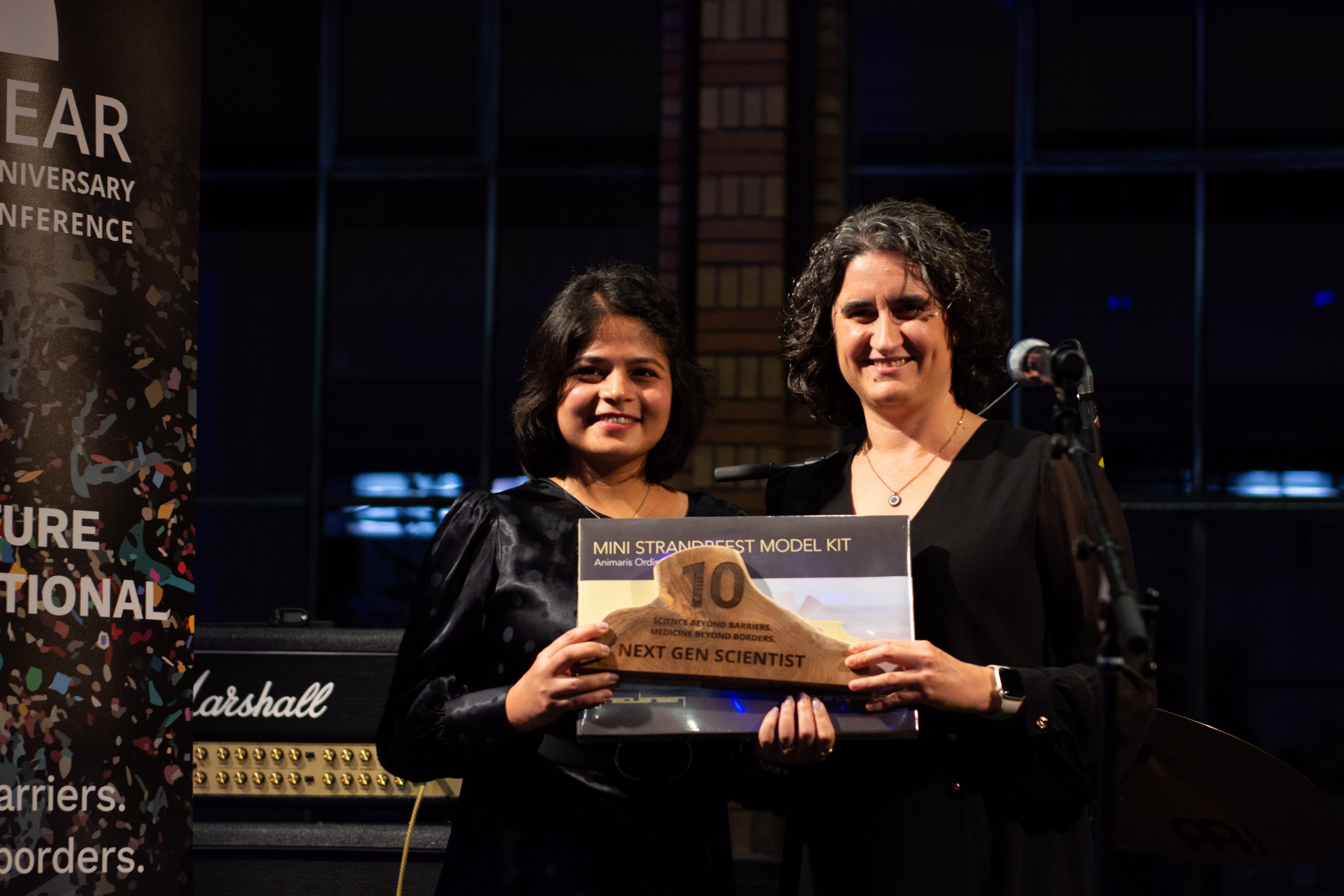
What has been the highlight of your EATRIS experience so far?
I am honoured to share my enriching journey with EATRIS and how pleased I am to be able to collaborate with EATRIS for various opportunities. Earlier this year, I participated in the EATRIS-Plus Staff Exchange Programme which allowed me to visit the Aragon Institute of Engineering Research (i3A) in Spain to get familiar with their microfluidics technology and the development of tumor-on-chip devices. This experience provided me with a unique opportunity to collaborate with other scientists and technical experts and expand my research network as wells as skills, gaining invaluable insights into cutting-edge translational research methodologies and fostering collaborative networks that transcend geographical boundaries.
In recognition of my contributions to advancing translational medicine submitted in the form of an innovative and creative video, I was humbled to receive the EATRIS Next Gen Scientist award. This acknowledgement not only symbolises my commitment to bridging the gap between bench and bedside but also highlights the supportive and collaborative environment that EATRIS fosters for emerging scientists.
My engagement with EATRIS at the EATRIS@10 celebration and award ceremony has been nothing short of a wonderful experience. The EATRIS team are such a dynamic and passionate group of individuals, who inspired me by their dedication to advancing translational research and fostering a collaborative spirit within the scientific community.
What is translational research for you?
Translational research is like building a vital bridge between scientific discoveries in the lab and their real-world impact on patient care. It’s about taking those groundbreaking ideas, often born in research laboratories, and working to translate them into practical applications that can improve health outcomes.
Why did you decide to work in the translational medicine field?
As a cancer survivor myself, I have developed a heightened sense of purpose in pursuing research that can lead to better treatments, early detection methods and improved patient care. My journey has given me a unique perspective and motivation to make meaningful contributions in the field of translational medicine, that’s why I chose to carry out my graduate research work in the field of cancer and have always worked closely with the hospital. I have continued contributing to this field by taking up an ambitious postdoc project with a strong translational arm in the field of brain tumours.
What advice would you give your younger self?
It’s important to embrace change and uncertainty. Most importantly to trust the process and myself a little more. I would d encourage myself to be open to new experiences, take risks, and not be afraid of failure. I’d remind myself to prioritise self-care, both mentally and physically, and to be patient with the journey. Have faith that everything will fall in place eventually!
What do you like to do when you aren’t working?
I enjoy my own company a lot and mostly engage in hobbies that bring me joy and relaxation. I’m an ardent reader, so you can very well find me engrossed in fictional or period dramas or trying my hand at creative endeavours like painting, crafting or decorating different corners of my house. I also enjoy swimming, yoga or just taking a stroll in nature.
If you were a drug, vaccine or diagnostic, what would you be and why?
I would aspire to be a superhero pill in the fight against cancer, working tirelessly to target and overcome the challenges that the disease presents. Envision me as a dynamic treatment that combines efficacy with a touch of resilience and hope.
What would surprise people to know about you?
I have an inborn knack for home decor, whether it’s selecting the perfect colour palette, arranging furniture with an eye for aesthetics, or crafting unique DIY pieces, I find immense joy and self-expression in transforming spaces into visually appealing and cosy environments that one would love to call home.
See below a video summarising Anuja’s experience at the EATRIS-Plus Staff Exchange.

